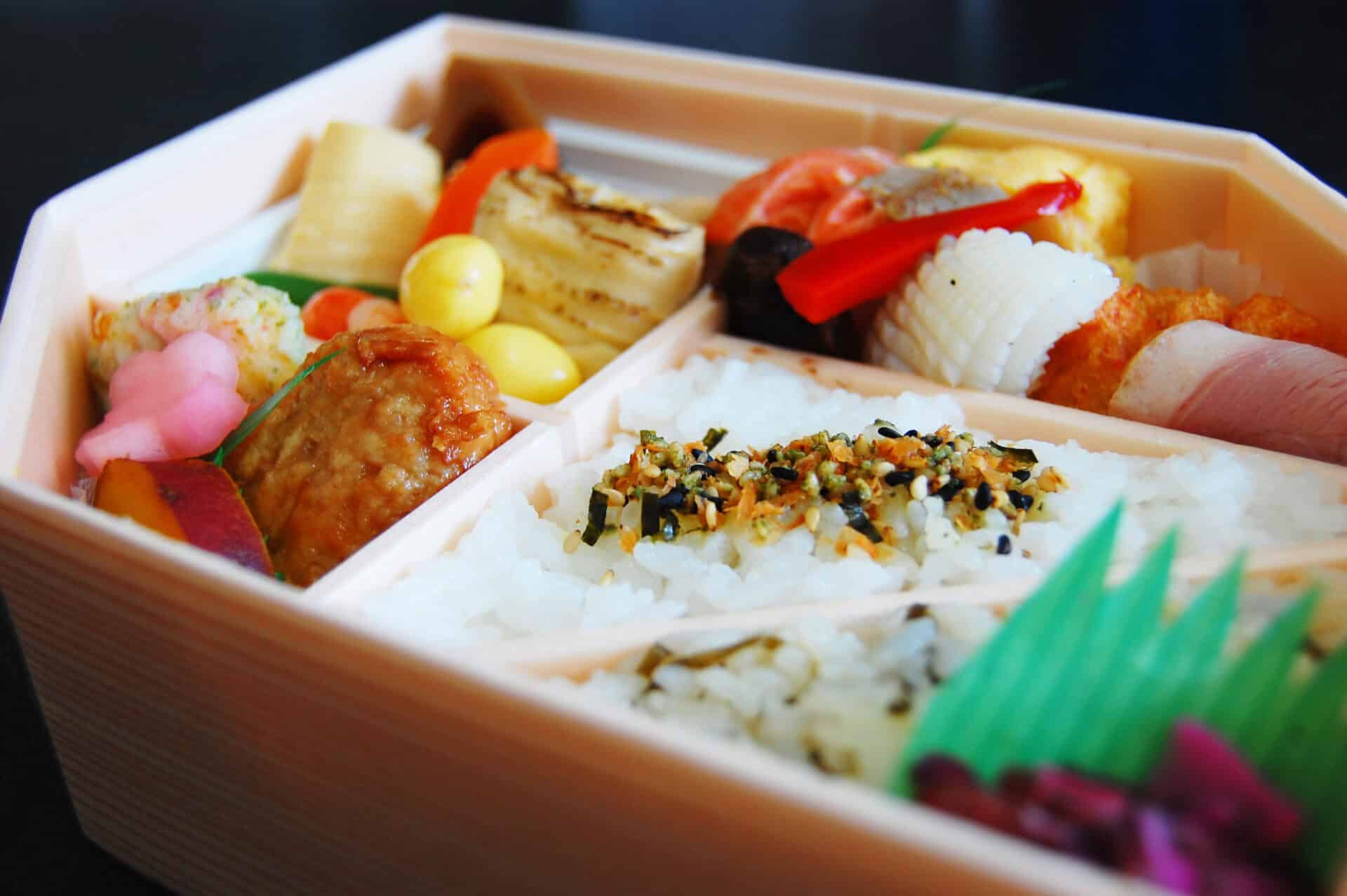Ekiben: The Art of Japanese Station Bento Boxes
Ekiben, a portmanteau of “eki” (station) and “bento” (boxed meal), are an integral part of the Japanese rail travel experience. These delightful boxed meals showcase regional specialties and culinary artistry, making them a must-try for any train journey in Japan.
What Makes Ekiben Special?
- Regional Flavors: Each ekiben represents local ingredients and cooking styles
- Seasonal Offerings: Many ekiben change with the seasons, featuring fresh, timely ingredients
- Artistic Presentation: Carefully arranged to be visually appealing
- Convenient Packaging: Designed for easy eating on trains
- Collectible Containers: Often featuring unique designs or reusable materials
Popular Ekiben Across Japan
1. Tohoku Region
- Tōge no Kamameshi (Yokokawa Station, Gunma): Rice, vegetables, and chicken cooked in a small pot
- Hitomebore Sansai Okowa (Ichinoseki Station, Iwate): Rice with mountain vegetables
2. Kanto Region
- Shōnan Aji (Odawara Station, Kanagawa): Assorted seafood on rice
- Gyūniku Domannaka (Utsunomiya Station, Tochigi): Grilled beef on rice
3. Chubu Region
- Sake Harasu Bento (Toyama Station): Grilled salmon belly on rice
- Hida Beef Bento (Takayama Station, Gifu): Premium Hida beef on rice
4. Kansai Region
- Osaka Eki-Naka Bento (Osaka Station): Assorted Osaka specialties
- Kobe Beef Bento (Kobe Station): Luxurious Kobe beef dishes
5. Chugoku Region
- Anago Meshi (Miyajimaguchi Station, Hiroshima): Grilled conger eel on rice
- Izumo Soba (Izumoshi Station, Shimane): Cold buckwheat noodles
6. Kyushu Region
- Ekiben Sushi (Nagasaki Station): Pressed sushi with local seafood
- Tonkotsu Bento (Hakata Station, Fukuoka): Pork-based ramen-inspired bento
How to Enjoy Ekiben
- Purchase your ekiben at the station or on the platform before boarding
- Some trains also sell ekiben on board, but selection may be limited
- Don’t forget to pick up chopsticks and wet wipes
- Wait until the train is moving steadily before eating
- Dispose of your trash properly in designated bins on the train or at stations
Ekiben Etiquette
- Be mindful of strong-smelling foods in crowded trains
- Eat quietly and neatly to avoid disturbing other passengers
- Don’t leave any trash or food remnants at your seat
- Some ekiben containers are meant to be returned – check for instructions
Ekiben Events and Festivals
For ekiben enthusiasts, there are several events throughout the year:
- Ekiben Matsuri at Keio Department Store (Tokyo, usually in February)
- Ekiben Grand Prix at JR Nagoya Takashimaya (usually in January)
- Ekiben Festival at Hanshin Department Store (Osaka, usually in January)
Tips for Ekiben Lovers
- Research popular ekiben before your trip
- Arrive at the station early to ensure you have time to choose and purchase
- Consider buying an extra ekiben to enjoy later – many can last a few hours unrefrigerated
- Collect ekiben containers as unique souvenirs
- Try seasonal limited-edition ekiben for a special treat
Ekiben are more than just a convenient meal – they’re a delicious way to experience Japan’s regional cuisines and a cherished part of train travel culture. Next time you’re on a Japanese train journey, don’t miss the opportunity to savor these boxed delights!
